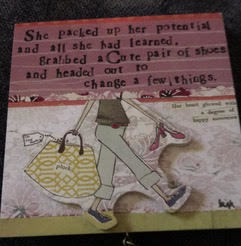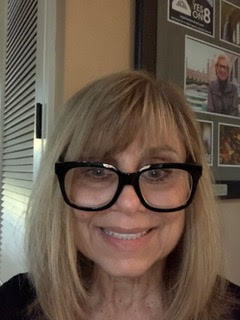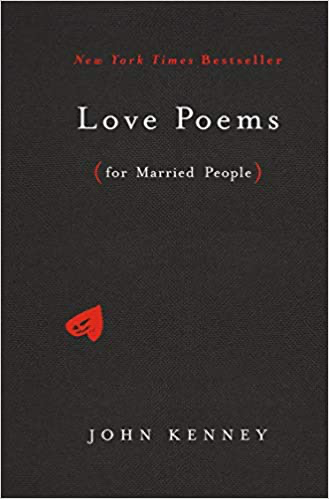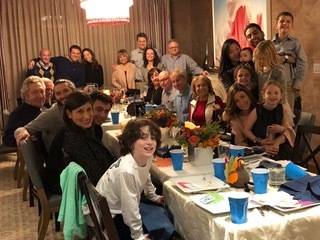Iris Ruth Pastor's Blog, page 27
December 18, 2020
THE SECRET TO LIVING THE LIFE THAT YOU CRAVE DURING COVID!
The Center for Disease Control and Prevention is reporting high rates of depression – and political and economic uncertainly is contributing to our feelings of despair – even with the dawning of a number of vaccines on the immediate horizon to fight Covid-19.
How can we counteract these feelings?
How can we surmount our mood of helplessness and hopelessness?
So many of us have missed weddings, graduations, bar and bat mitzvahs, births, and funerals
So many of us have postponed trips
Canceled milestone celebrations
Curtailed social outings
It’s so easy to slip into a permanent mindset of annoyance, frustration, and disappointment – bitterness even – because we won’t get these times back.
What can we do?
Here are some suggestions to change a few things:
All of which involve self-care
All of which involve putting yourself first.
Let us practice resiliency.
Physical resilience is the ability to spring back into shape after bending, stretching or being compressed – and our lives are certainly being compressed.
And when the definition of resiliency is applied to people, it means being able to withstand or recover from difficult conditions.
So how do we cultivate and practice both types of resiliency?
We focus on the positive – we look for the gifts in the still waters.
Let us utilize our imagination, resources and innovative talents to come up with life-affirming actions we can put into place NOW:
Calling a friend who is lonely to say hello
Collecting food for a family in need
Exercising
Communing with nature
Reaching out to our own support system for sustenance and encouragement
Making a list of what we’d like to do post-Covid – it’s easier to get through difficult times when we have an event or activity or trip to look forward to
Taking advantage of COVID confinement to learn a new skill – knitting, cooking, survey of literature, painting – there are a vast number of courses online
De-cluttering our stuff
Documenting our belongings and keepsakes for those who will come after, identifying all those unfamiliar faces in those long-ago pictures
Writing an ethical will
Going on a healthy exercise and nutrition regiment
Fine-tuning our sleepy time routine to ensure we get as much restful sleep as possible
Let us employ self-compassion
Let us treat ourselves with the same kindness, warmth and patience that we treat people who are near and dear to us.
We may still be in the Covid tunnel of Hell, but the light at the end of it has appeared in the form of vaccines and is glowing brightly and steadily stronger as we approach it. . .
G-d Bless you all and G-d Bless America.
And Keep Preserving Your Bloom,

Iris Ruth Pastor
Hugs, Iris
December 11, 2020
Read this column if you like doing things YOUR way!
What I love:
You know what I love about having my very own weekly newsletter?
It can be any length
It can be about any subject
It can be with or without images
It can be with or without subtitles
And the subject line can be as long or as short as I choose
For those who know me well, it will come as no surprise that I like doing “my own thing.”
What does that entail?
When it comes to good deeds, I like giving back, but I do so in non-traditional ways:
The side pocket of the driver’s side of my SUV is stocked with cans of V-8 juice, which I hand out generously whenever I come upon a person walking the intersections of my city, beseeching drivers for food.
I donate many of my hand-knitted pouches, packed with individually wrapped peppermints, to assisted and independent living facilities around the holidays to bring cheer to those shut in.
Early in Covid-19, I fashioned face masks out of yarmulkes (Jewish skullcaps) and distributed them in gift bags to all of my neighbors within a two-block area.
What I like:
I like changing things up. Being creative. Innovative. Different. In fact, one of the most consistent comments I get about my weekly newsletter is that readers “expect the unexpected.”
What I do:
This year, I find myself way too often looking around my house in search of projects to de-clutter and re-design my living space. I often quip that “I am organizing my life, not living it.”

I decide to tackle the ridiculously large number of books gracing every crevice of every book shelf in my home – threatening to surround me like this poor woman above! I start pulling out volumes I am emotionally ready to part with. This results in a ridiculously large number of books stacked up on both sides of my two-car garage.
My favorite librarian at a quaint little library nearby tells me the local libraries aren’t accepting book donations during Covid. Oh no. I donate to the Salvation Army instead.
There are still many bags of books left in my garage. I sell some to the used bookstore near the university.
I wrack my brain for an innovative, meaningful way to dispose of the remainder of the books – before I waver from my good intentions and place them back on my still over-crowded shelves.
Inspiration strikes. And I hit on an idea:
A BOOK GIVEAWAY FOR MY READERS!
If you’d like one of the books listed below, simply E-mail me at irisruthpastor@gmail.com, request a specific title and include your address. If you are the first to select that title, I will send it right out to you. Free of charge! It’s my way of participating in holiday giving.
Here’s the list of novels in alphabetical order by author:
My Husband’s Sweetheart
by Bridget Asher
Umberlina
by Helen Barololini
The Embers
by Hyatt Bass
Mystery Ride
by Robert Boswell
The Inheritance of Loss
by Kiran Desai
Siracusa
by Delia Ephron
All That I Am
by Anna Funder
The Impossible Lives of Greta Wells
by Andrew Sean Greer
New Year’s Eve
by Lisa Grunwald
Lilah
by Marek Halter
The Museum of Extraordinary Things
by Alice Hoffman
Someone Else’s Love Story
by Joshlyn Jackson
The Journey of the Fottoumo
by Naguib Mahfouz
The Lakeshore Limited
by Sue Miller
And We Are Called to Rise
by Laura McBride
The Winter People
by Jennifer McMahon
The Member of the Wedding
by Carson McCullers
Run
by Ann Patchett
The Tiger’s Wife
by Tea Obreht
Wild December
by Edna O’Brien
After Anna
by Lisa Scottoline
Thera
by Zeruya Shalev
Almost Missed You
by Jessica Strawser
Ashes in the Wind
by Kathleen E. Woodiwiss
Small Blessings
by Martha Woodroof
Happy Reading,
Keep Preserving Your Bloom,
And let me know how YOU give back,
Iris Ruth Pastor
P.S. A week from today I’m giving a one hour “pep talk” on how to lead the life you crave – especially during Covid!
Below is the link to sign up and a video describing my talk.
https://san-diego.oasiseverywhere.org/product/wisdom-to-live-the-life-you-crave/
December 4, 2020
What’s Guaranteed to Raise Your Spirits?
What’s Guaranteed to Raise Your Spirits?
I’ll give you a few hints.
It’s available,
cheap,
accessible
and effective.
It’s HUMOR.
Take the following joke as an example:
My wife and I were sitting at a table at her high school
reunion, and she kept staring at a drunken man swigging his drink as he sat alone at a nearby table.
I asked her, “Do you know him?”
“Yes”, she sighed,
“He’s my old boyfriend. I understand he took to drinking right after we split up those many years ago, and I hear he hasn’t been sober since.”
“My God!” I said, “Who would think a person could go on celebrating that long?”
Now don’t you feel better already?

One thing that consistently helps us deal with obstacles,
road blocks and bumps in the road
is humor.
Developing our own sense of humor,
and looking for the humor in the daily doings of life
helps us weather instability and change
helps us find balance in very strange environments
helps us evolve and find a comfortable place for ourselves.
Humor reduces stress,
put things in proper perspective,
takes the edge off
and helps us concentrate less
on our disappointments, frustrations and woes.
I recently came across a book titled
Love Poems (for Married People)
by John Kenney.

This is the type of poem
I expected would be included:
Feeling
by Gary R. Hess
Feeling your love caress my heart
Feeling your light touch my soul
Feeling like the golden sun
Feeling the way you move me
Feeling your mind touch my life
Knowing I can’t lose you
For you are my life, heart, and soul
Forever I am yours
That is NOT what I got in
Love Poems (for Married People)
Instead, I read about a guy
who misses the birth of his baby.
Why?
Because he was hungry
and went across the street from the hospital
for a burger and beer
and kinda lost track of time –
Another poem simply titled “Orgy”
ends with the following lines:
Did I say orgy?
Sorry, my mind wandered.
I meant yard work.
Check out your books at home.
The information page at the beginning of the volume
most likely will say the following:
No part of this book may be reproduced or transmitted in any form …failure to comply with these terms may expose you to legal action and damages for copyright infringement.
Not exactly a warm and fuzzy beginning.
This is how
author John Kenney
starts his book:
Copyright fuels creativity, encourages diverse voices, promotes free speech and creates a vibrant culture. Thank you for buying an authorized edition of this book and for complying with copywrite laws by not reproducing, scanning or distributing any part of it in any form without permission. You are supporting writers and allowing Penguin to continue to publish books for every reader.
Most books have a dedication page
that reads something like:
To Charlie and Brenda
Who make it all possible
Or:
In loving memory of my mother,
who guided me throughout
Not John Kenney.
He simply lists a bunch of first names,
crosses each name out except the last
(his wife’s)
leading the reader to believe
there were many before her!
(There weren’t.)
Love Poems (for Married People)
is the perfect holiday gift.
Inexpensive.
Personal.
Relatable:
And guaranteed to dispel
the “Covid Gloom.”
Happy reading!
Keep Preserving Your Bloom,
Iris Ruth Pastor
November 27, 2020
Thank Goodness Thanksgiving is Over!
Whew.
Thanksgiving is over.
I got past the disappointment of not being with all five of my sons sharing turkey and sweet potato casserole the first time in decades – and then looking around the table at my huge family network as it expanded and contracted over the burgeoning years.

I embraced with optimism the fact that vaccines are on their way. And I continue to adapt to more severe social distancing and cocooning at home now that the Covid 19 deaths and diagnoses are sky rocketing once again.
And when I start to go down the Covid rabbit hole of despair and disappointment? I remind myself that I have a very nice roof over my head, no food insecurity and a shelf in my garage filled with toilet paper and paper towels.
Which brings me to the next issue: How to be kind to my husband. Confined at home, it’s so easy to get naggy and irritated by the random little things he does. Why? Because I am spending so much more time with him now that Covid is raging.

So, as reminder to myself and to others, I decided to run this week a column I wrote on keeping an aging marriage sparkly.
Preserve the Practice of Ritual
When we were first married, every morning my husband would sit on the edge of our king-size bed and circle my slim waist with his massive hands. Facing him, with a large toothed comb in one hand and globs of conditioner in my other hand, I’d transform his mass of dark curly locks into a more professional look. Then he would pull me close for a warm embrace before reluctantly releasing me from his muscled grasp.
This “Harlequin Moment” gradually dwindled both in brevity and regularity with the arrival of babies who grew into toddlers and toddlers who grew into nursery-school goers. Early morning chaos replaced the previous Zen-like beginning of our day.
My husband’s curly locks and heavily muscled back are gone, as is my slim waist. The toddlers are grown with families of their own. No pressing work demands await us. And we wake up once again – just the two of us.
Our new morning ritual begins with me now facing his back, not his chest. Magical cream designed to block nerve pain has replaced the hair pick and conditioner. With long, smooth strokes, I carefully apply the cream to his back, shoulders and lower torso – cream that enables him to walk a few city blocks with relative ease.
The series of actions I performed according to a prescribed order has changed, but the ritual of doing something intimately and consistently with my husband has been re-ignited.
Show your Best Side to your Spouse
My charm, cleverness and sense of humor are often other-directed – into my writing. To my wide circle of friends. To utter strangers. How was I treating the man I had been married to for nearly forty-five years? With shock, I started noticing a shrillness creeping into my voice when I spoke to him. A dismissive, insensitive tone. A condescending way of answering his never-ending basic questions about how to use the note section in his cell phone.
I silently instigated a campaign to “lose the snippiness.” I stopped myself from getting irritated at the way he clapped too loud when watching sports events on TV. I stopped criticizing his relatives, even when I felt I was right. I stopped complaining about his clothes thrown on the floor and his cane invariably left in a place where I would most likely trip over it. I stopped denigrating his food preferences for what I considered to be bland and uninteresting.
Apply Kindness
Instead of leaving him a written, blistering note full of directions and exclamation marks (and a few expletives too), I started politely asking him to call the landscaper and check on the bushes against the southern wall that were withering. Instead of bitchily shooting off strident directions, I started laughing at his inability to take a decent picture with his iPhone. Instead of displaying ill-concealed and irritated impatience, I started respectfully listening to his political opinions with full attention.
The random acts of kindness, gentleness and compassion I’d been showering on friends and strangers was now drizzling down to the most important person in my life – my partner.
It’s funny. There seems to be less clothes on the floor for me to trip over. His camera skills may be improving. He’s not clapping as loudly when OSU scores a touchdown and he’s experimenting with new foods.
Or is it just my imagination?
Perhaps it’s just that my new approach has sharpened my focus on why I fell in love with him in the first place.
Keep Preserving Your Bloom,
Iris Ruth Pastor
November 20, 2020
Maybe
Maybe tomorrow
I’ll walk down to the end of my block
and watch the sun rise
over the bay
at 6:56am.
If I’m not too busy
stretching out my back muscles,
rotating away the
tightness in my shoulders,
unclenching my jaw,
softening my brow.
Maybe tomorrow…
But the plants need watering.
I promised a new blog post
to a coveted website
by the end of the week.
The dryer’s filled with a mass of t-shirts
begging to be folded.
And the pieces of my Thanksgiving project –
destined to replace our lively get together this year –
are sprawled crazily over my kitchen counter –
calling for completion.

Maybe tomorrow,
I’ll walk down to the end of my block
and watch the sun rise
over the bay
at 6:56am.
Maybe.
This Thanksgiving,
when so many of us
are aching to be
with family and friends,
let’s lament our losses less
and glory in the wonders
of nature more.
Take the damn walk. 
November 13, 2020
Barring the Belly Button at Midlife and Beyond?
Now that the election is over – though by some, the results are still being contested – maybe we can return to the more “important” things in life to consider, such as whether to bar or not bar our belly buttons at midlife and beyond. This is an important question – surfacing at least once a week when I make a furtive trek out of my home into the Covid infested environment.
Susan Bordo, author of Unbearable Weight: Feminism, Western Culture, and the Body, says contemporary culture has a hankering for a new piece of feminine beauty to focus on. It seems that with the great amount of surgical breast enhancement going on, the bosom’s enduring symbol of femininity has been diminished. The newest location of body fascination to be prized and flaunted is a flat, evenly tanned, taut belly.

I’m grateful for a lot of things. One is that my mother took great care to make sure my belly button was an “innie” and not an “outie.” As it turns out, that’s a good thing. What with everyone’s preoccupation with flaunting their tummies, I wouldn’t want, at age 73, to be at a greater disadvantage than I already am.
Being saddled with a protruding navel is the least of my worries at this stage of life, however. I’ve got other issues needing to be resolved as I ponder the question of whether to bar or not bar my midriff.
Evolutionary psychologists are having a field day. The dilemma of the modern day, affluent woman is once again mired in contrasts. We are wealthy enough to eat what we desire, but hemmed in by societal demands to look emaciated and hungry. And what better billboard to project our self-control and self-righteous denial than our midriffs? The buffer the better.
But barring the navel presents another indicator of sorts for professionals to study. Research suggests that the renewed interest in the stomach area shows what has been known for centuries: abdomens have long been the focus of sexual interest. (Belly dancing was said to have begun as a fertility and childbirth ritual.) The exposed navel is now not only a symbol of youth and self-control, but also of fertility and reproductive power.
Hmmm. I’ve had five kids and some abdominal surgery. My body telegraphs my advanced years with aching accuracy. My belly is white, not tan; fleshy, not taut; scarred, not unblemished. Rooted in reality and complacency, I am not motivated to indulge in a tanning booth, begin a rigorous routine of abdominal tightening exercises, nor go under the knife for plastic surgery to smooth out the scars and tuck the tummy.
Am I doomed to be un-hip? Viewed as powerless and unnecessary?
Not oblivious to the constraints I need to work around, I’m resigned to passing up the opportunity to participate in naval tattooing and donning a dangling navel pin. But I’m eagerly contemplating another couple of holes in my ear lobe and slipping on a few toe rings as necessary accouterments to establish the fact that this aging baby boomer is still not out of the game.

Maybe all that real estate surrounding my navel needs to be viewed in a new light. Barring the taut tummy signals fertility. Keeping it covered could just as readily signal that my mission has been accomplished: fertility has been affirmed and my feminine function fulfilled. Surely the presence of my five sons attests to that.
So, I’m showing some deferred maintenance and signs of exterior aging and obsolescence. Let it be noted that vintage is good and that endurance lends a shining patina to my body’s assets.
And everyone knows that real estate assets should be put to the highest and best use. I’ve appraised my property and decided to keep my personal buffet of features under wrap and undercover. I’m not putting it on the market. Instead, I’m going back to the stage of human development when desirability was based not on over exposure, but on mystery and shadowy sightings. And that is the course I choose to follow.
Keep Preserving Your Bloom,
Iris Ruth Pastor
November 6, 2020
Turning Churning Emotions into Productivity!
This week was quite an emotionally packed week no matter whom you voted for POTUS. Trump and Biden fight it out to the end as election officials faced long hours and close vote counts in battleground states.
History was made on many fronts. So what better thing to do in the days following this historical election and its aftermath than to document our feelings and reactions for the generations to come? Our descendants will surely be posing questions to us on this notable moment in our history.
There’s a vehicle to do just that: an Ethical Will
What is an Ethical Will?
An ethical will is a way to preserve our values and impressions for our family both while we are still alive and after we pass. Ethical wills are written when facing challenges, marking milestones events or passing on our impressions of a certain time in our lives that impacted us greatly. This is a great vehicle for imparting life lessons that we want to pass on to our kids and grandkids – to clarify our values and visions – to expound on what we believe in, and give context to what we have done with our lives.
As Rachel Freed says in her book Women’s Lives, Women’s Legacies, “If our lives are to have lasting meaning, we must use them as a sacred link, consciously connecting the past and the future.” We do this by putting into words and offering our articulated legacy to loved ones while we are still alive – so it becomes a gift to both the present and the future.
When we create an ethical will, we learn about ourselves, reflect on our life, articulate what we stand for, tell stories that illustrate our values, and pass on something for perpetuity. Ethical Wills provide something tangible to return to over time to measure how our thinking has evolved.

Sample story starters for an Ethical Will on this election cycle:
What I have learned about my values as I witnessed this election cycle……
Living through this election, I believe an important lesson learned was…
Remember that one person can make a difference. Why you make your life worthwhile when you vote….
In the aftermath of this election, I learned why it is important to listen closely to those who think and vote differently than me…..
The event during this election cycle that had the biggest impact on me was….
How I view the United States of America in the light of the results of the Biden/Trump election of 2020 and what hopes I have for the future….
Here’s some historical facts to keep in mind on why I value the right to vote so highly….
Why write an Ethical Will?
We are obliged to record our personal values and family stories in order to strengthen the fabric of civilization – and to make sure that our perspective is preserved and the life lessons we have learned are communicated.
As Marian Wright Edelman said, “My parents’ example and messages keep me grounded when I am tempted to lose sight of what is important amidst the mounting demands of work and family and a culture that values things and style and packaging and publicity over substance and service and concrete action.”
An Ethical Will can be long or short.
An Ethical Will can be saved on the computer or written on archival, acid free paper and stored in a safe space.
An Ethical Will can be free flowing or stilted, eloquent or stream of consciousness.
It doesn’t matter.
An ethical will is a timeless gift from the heart that our children and our children’s children will thank us for, bless us for and love us for writing.
Keep Preserving Your Bloom,

Iris Ruth Pastor
PS: I’ll be participating in the expo below via a pre-recorded interview centering on women and eating disorders.
Treat Yo Self Feel Better Expo
November 13-15
Here is the link to register: https://maryrosefoundation.org/expo/
PS #2: if you’d like to delve deeper into Ethical Wills, here are two excellent resources:
Ethical Wills by Barry K. Baines
So That Your Values Live on – Ethical Wills and How to Prepare Them by Jack Riemer and Nathaniel Stampfer
October 30, 2020
Where’s all your junk going to end up?
My kids would say I definitely have too much time on my hands – and they are probably right. Cautiously spending as much time as possible at home cocooning during Covid encourages over scrutiny of my possessions.
With a plethora of time on my hands, I begin documenting which of my husband’s and my possessions are just that: possessions. And making carful note of what are family heirlooms worthy of passing down – along with the back story of each item.
Our house is plant heavy, bursting with books and accompanied by an over-abundance of scented candles. Plants die. Books are replaced by Kindle. Candles burn out.
What’s lasting?
What has a history?
What tells a story?
Those are the items worth keeping and worth the time and effort to tell their story.
Take the curio cabinet gracing the front hall – do my children know their great Uncle Izzie hand-carved it? Do my kids know that there are some irreplaceable treasures amidst the junk inside that cabinet. And would they know the difference between the two?
Here are two separate items from the cabinet. The cup and saucer on the right is Royal Grafton Fine Bone China made in England – part of a collection of cups and saucers my grandmother bought with great pleasure and with money squeezed from her and my grandfather’s flower shop proceeds – proceeds which were often meager at best. The delicately flowered mini mug? Mass produced. Made in China. Absolutely no sentimental attachment. I bought it recently from a local second-hand shop for 45 cents simply because I liked both its petite size and the floral pattern.
Obviously, I’m saving letters from my dad to his older sister during the closing years of World War 2, when he was stationed in England and his B-17 crew were flying frequent bombing raids over Germany.
And obviously I’m saving swords brought over by a nameless relative when he immigrated from Russia around the turn of the 20th Century. (Regrettably, the exact details of the swords’ back story have been lost.)
And then there is my mother-in-law’s dining room breakfront bought with the $500 my father-in-law received from the US government after returning stateside in 1946. He had served honorably in the Army and was part of the troops liberating Auschwitz. My mother-in-law often said they needed everything when they first set up house keeping – pots and pans and dishes – but the dining room credenza stole her heart and so that’s where the $500 went. I cherish its presence in my home.
Okay, I admit. My house is over run with books, books and more books. I’m sure most of them will be donated to the library or sold for pennies at a garage sale once my husband and I depart this earth.
But there are a few very special ones that I am singling out as worthy of keeping.
From left to right above: The green volume of books contain paper copies of every single issue of The American Israelite during my tenure as editor.
The orange and the blue book were our first readers that my husband and I both read in 1953 at Bond Hill Elementary School.
Wedged in between: My mom’s tattered and old Settlement cookbook from 1955 – abounding with her personal markings on many of the pages. It’s a book where so many family favorite recipes were first discovered.
Coffee mugs chart family history – don’t be so quick to toss out random mugs denoting past events and family members.
I don’t necessarily care which of my kids or grandkids ends up lugging our stuff home – it’s more about choosing what personally calls out to them when I’m no longer here. And I feel I’m doing my part by telling the story of the things my husband and I have chosen to populate our own home.
And I hope by my writing this blog it jumpstarts you into giving some thought to what possessions are important enough for your heirs to know about and which you are okay with ending up on a card table labeled “miscellaneous chotckas $1 per bag.”
If our stuff ends up in a cherished spot in my loved ones’ abodes, I’m happy.
And if not? If our “stuff” ends up on a card table, piled high admist a bunch of discolored silver pieces and stained cloth napkins, grouped together at an estate sale, following our demise? That’s okay too.
Because I cared.
Because I tried.
Because I noted.
The rest is up to them.
Keep Preserving Your Bloom
Iris Ruth Pastor
PS: Here I am out at a voting precinct waving a sign for my son Harry, who is running for local office. This cute teenager comes up to me while riding his bike and asks about the election. His closing remark before pedaling off: “For an old lady, you sure have pretty teeth.”
October 23, 2020
Why I Love Getting Up Each Morning
Why do I love getting up every morning?
My exercising as soon as I hop out of bed sets me up for a healthy-minded day
My short daily prayer expresses my gratitude
The Calm app sends me off on a serene, mindful tract
provides me:
And The Writers Almanac
mental stimulation
an appreciation of our fellow human beings
an unending and interesting historical tidbits highlights authors and poets, plus introducing me to new ones
Here’s two delightful excerpts from two poets:
“Possibilities” by Linda Pastan
Today I drove past a house
we almost bought and heard
through the open window music
made by some other family.
We don’t make music ourselves, in fact
we define our differences
by what we listen to.
And what we mean by family
has changed since then
as we grew larger then smaller again
in ways we knew would happen
and yet didn’t expect
“The Splits” by Connie Wanek
“The world of my youth was divided
into girls who could and girls who couldn’t
slide casually to the floor,
one leg aft and one fore, while their faces
retained a sprightly cheer..,
Yet the splits seemed less a skill
than a gift of birth: Churchillian pluck
combined with a stroke of luck
like a pretty face with a strong chin.
One felt that even as babies
some girls were pre-dispositioned.
Here’s some historical tidbits worth noting:
October 11: It was on this day in 1975 that Saturday Night Live had its premiere, with George Carlin as host. The first sketch had Michael O’Donoghue as an ESL teacher attempting to teach English to his Eastern European student, John Belushi. Janis Ian and Billy Preston played music, Andy Kaufman and the Muppets were special guests, and Paul Simon made an appearance.
October 11: This is the birthday of the longest-serving First Lady, Eleanor Roosevelt, born in New York City (1884), who said, “A woman is like a tea bag. You never know how strong she is until she gets into hot water.”
During World War I, she went off to Europe and visited wounded and shell-shocked soldiers in hospitals there. Later, during her husband’s presidency, she campaigned hard on civil rights issues — not a universally popular thing in the 1930s and 1940s, or in 2020…
She also said: “You wouldn’t worry so much about what others think of you if you realized how seldom they do.”
October 14: Theodore Roosevelt was shot at a campaign stop on this day in 1912… when John Schrank, an unemployed saloonkeeper, shot him with a Colt revolver from a distance of five feet. Schrank intended to stop him from pursuing a third term as president…The crowd tackled the shooter, but Roosevelt’s composure was not ruffled in the least. He asked Schrank why he’d done it, and turned the man over to the police when he received no answer. Roosevelt then coughed experimentally into his hand, and deduced that the bullet had not penetrated his lungs, because he didn’t cough up any blood. He insisted on proceeding to the Milwaukee Auditorium, where he delivered a 90-minute speech as scheduled.
He began by calling for quiet, and then told the stunned crowd: “I don’t know whether you fully understand that I have just been shot… He opened his coat to reveal his bloodstained shirt, and credited the 50-page speech in his breast pocket for saving his life.
Roosevelt blamed the media for provoking the shooter: “It is a very natural thing,” he said, “that weak and vicious minds should be inflamed to acts of violence by the kind of awful mendacity and abuse that have been heaped upon me for the last three months by the papers.”
He also predicted that such shootings would become more commonplace, should the government fail to care for the well-being of all its citizens.
In the end, Roosevelt came in second to Democrat Woodrow Wilson…Schrank’s bullet remained lodged in Roosevelt’s rib for the rest of his life.
The secret to waking up happy? Having something to look forward to.
Subscribe to The Writer’s Almanac:
Listen to the audio
Subscribe to this email newsletter
Subscribe to the Apple Podcast
Enable on Alexa
And you will have something to look forward to also.
Keep Preserving Your Bloom,
Iris Ruth Pastor
October 16, 2020
Getting Past Estrangement
I remember years ago, when I was married to my first husband, traveling regularly from Florida to Ohio with my two small sons to visit my parents. Saying goodbye after an extended stay in my hometown was agonizing – my mother would cry uncontrollably and lament the unfairness of me living nearby my husband’s family and not my own. All I wanted to do was distance myself from her pain as quickly as possible. And the more miles that separated us, the calmer I felt.

I thought about that endlessly looping dynamic for years. Why my mom seemed to suffer so much more acutely than I did. Why there was such a sheer imbalance of emotional intensity. It was brought to my attention more recently in regard to comments made by my friends’ adult children and their offspring:
My son just stated driving – we used to watch all sports programs together – now he is just as likely as to be over at a friend’s house watching a ball game than at home with me hanging out.
My favorite person to spend Saturday afternoon with is my 5 year-old little girl – and she with me. Wonder how long that will last.
Karl Pillemer, author of Fault Lines, gave me the key to all the above imbalances:
Parents are more invested in their adult children than adult children are in their parents. Studies show that…parents view the relationship as more important and express greater commitment to it. This imbalance comes from the different relationship histories and developmental stages of each generation.…parents see their children as a continuation of themselves – their legacy. The offspring, although attached to their parents, strive for independence and autonomy… Accumulated research points to this fact: in general, parents care more. They, therefore, have more to lose in an estrangement.
Estrangement between any two family members is a culmination of a long history of tension and disappointment, notes Pillemer. It is significant and widely toxic. The dreaded phrase uttered from one family member to another: I never want to see you again is a phrase that too often ushers in a formal declaration of estrangement and collateral damage for generations to come. Its, says Pillemer, is a “before and after moment in which everything changed irrevocably.” Angry rumination follows – as does silence, stand-offs and stonewalling. Past history shifts as it in interpreted in light of the volcanic event.
However, there are those who were able to bridge their rifts – not because their situations were easy to resolve – but because they were able to see the personal benefit of ending the estrangement – of dropping the weight of anger, hurt feelings and negativity that had plagued them for years.
THEY DID IT FOR THEMSELVES.
What did that entail?
In estrangements, both parties have composed narratives that support their sense of self and the way they think about the relationship. Estranged individuals often disagree dramatically on the meaning of the pivotal event. Those who were able to reconcile (Pillemer refers to them as Reconcilers) let go of both the need to align the two versions of the past and to agree on the past. Starting from the present was the key. (And individual counseling and therapy invariably helped this process.)
How to cross the chasm:
Successful reconcilers changed their expectations. They stopped expecting the other person to become someone he or she is not or stopped expecting that person to live up to their values. Both parties have to settles for less than they desired to restore the relationship – moving from seeking an ideal relationship to realistically attempting the best connection possible.
What’s in the reconciler’s tool kit?
Setting clear limits and boundaries
Making sure their own needs are met
Protecting oneself
And realizing “you can go home again, but it well may be a different ‘home.’”
Whichever it is, it’s definitely worth preserving.

Iris Ruth Pastor



